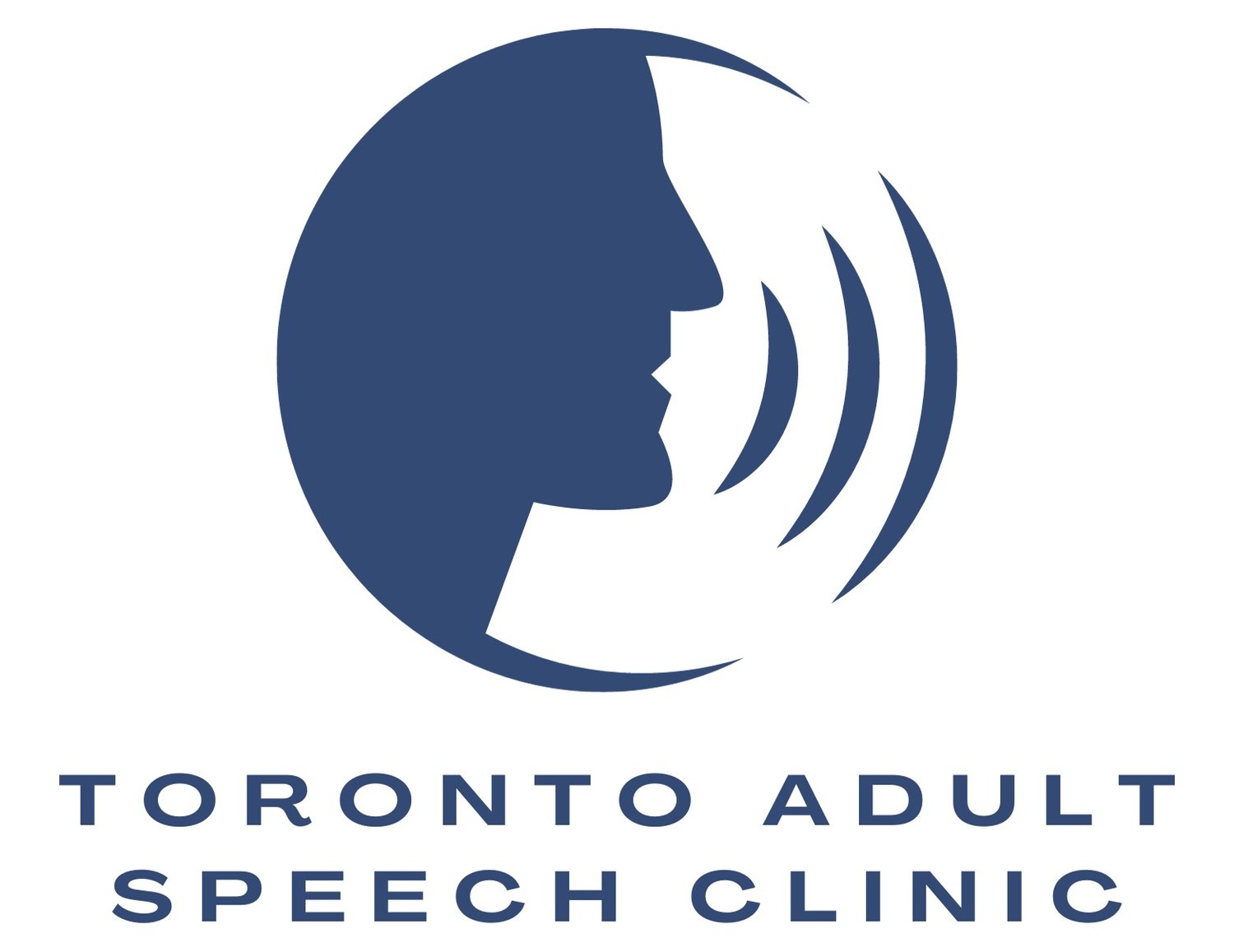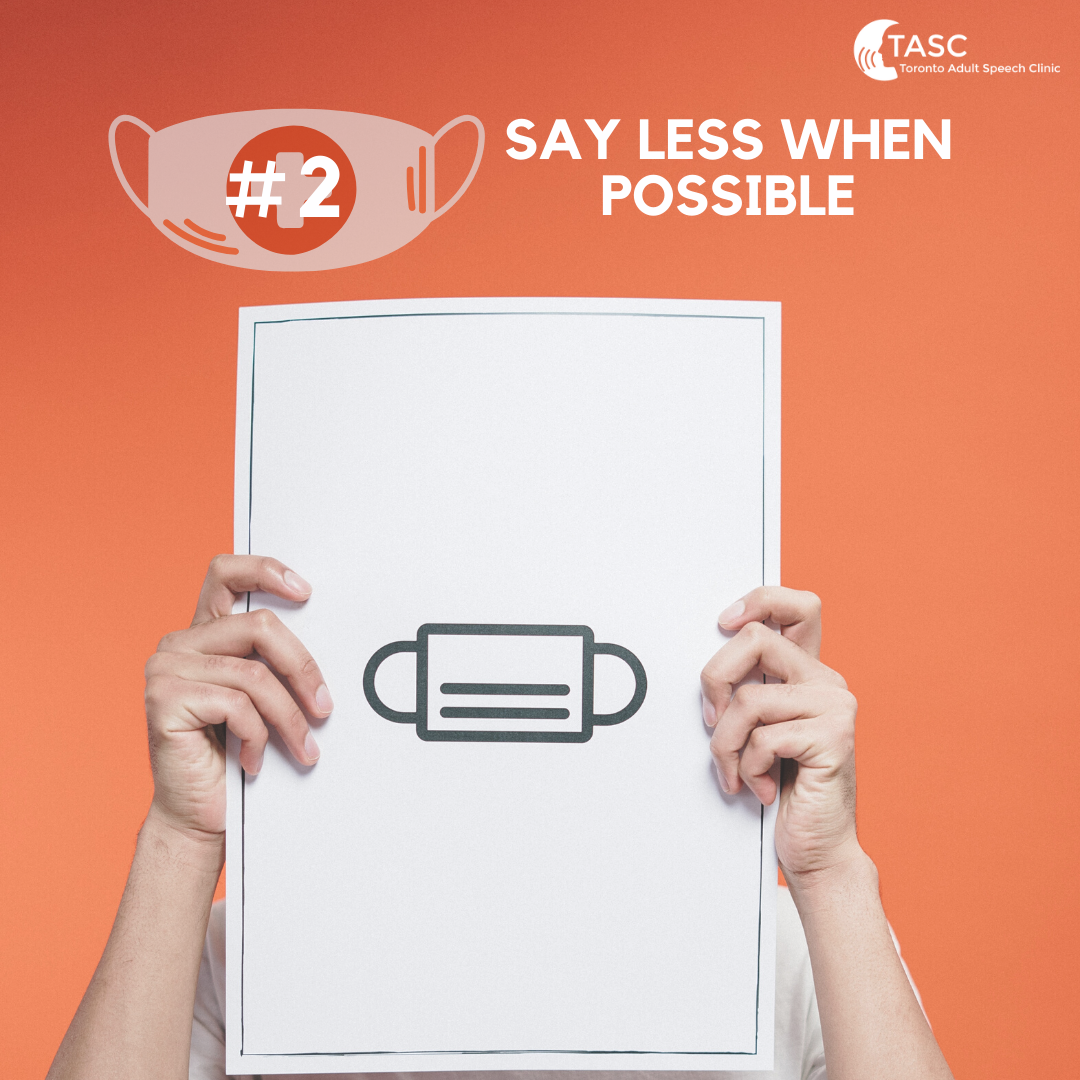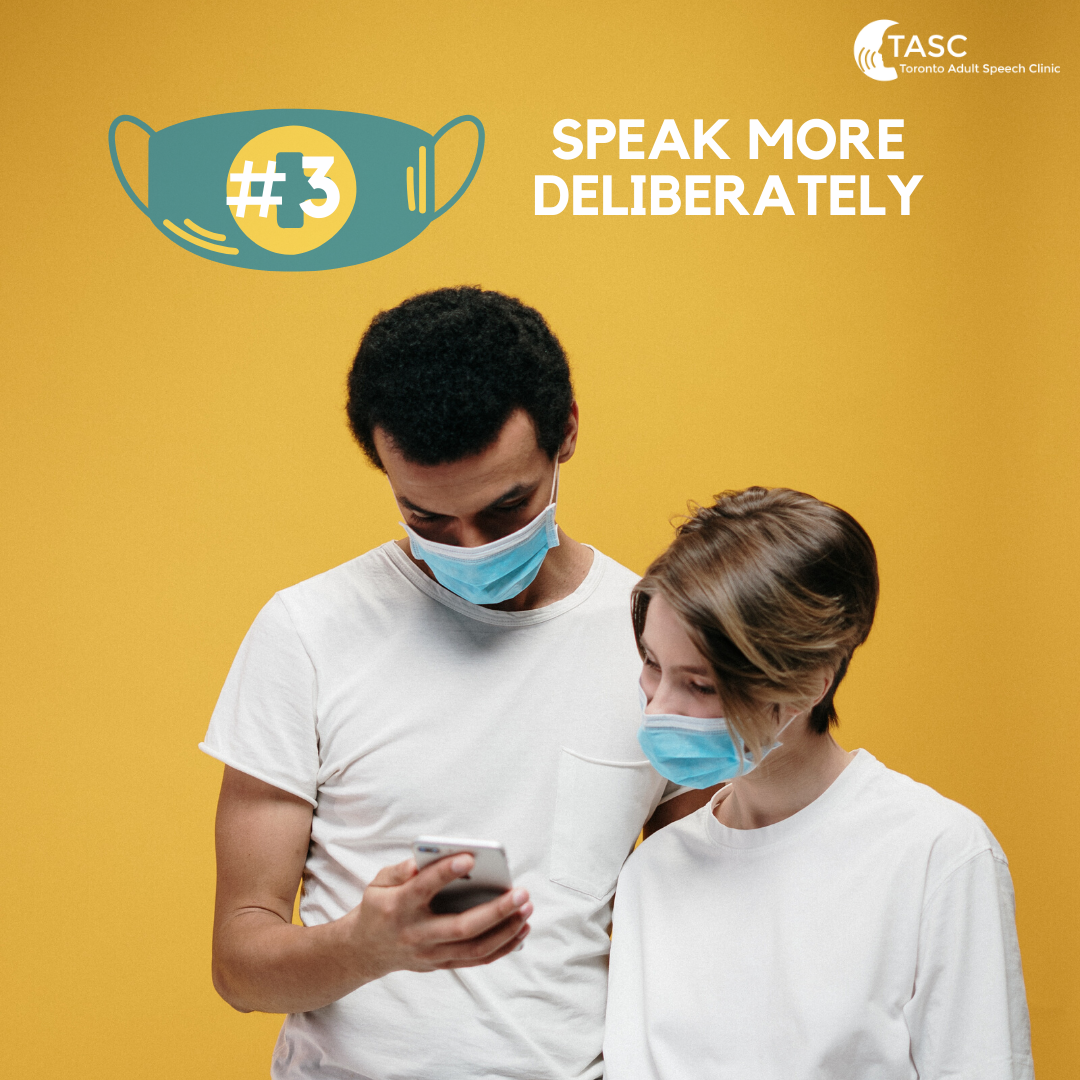Speaking With a Mask On
Speaking With a Mask On
Tips for keeping your voice heard AND healthy
Frontline workers have been reaching out to me more over the past week and expressing concerns like feeling lightheaded, straining or feeling pain in their voice, and also feeling physical and vocal fatigue. One of the reasons people have been requesting this support is because they feel constant use of a mask is impacting their ability to do their job in the same way as before.
When you think about it, this makes sense from a functional standpoint. A mask provides a barrier for things coming in but also, by default, has the same effect on what goes out- including our breath and our speech.
I have assembled five basic tips to get you started in thinking about how to communicate and use your voice more efficiently and effectively so that you can stay safe and healthy while you’re busy caring for others.
Breathe In and Out Through Your Nose
This will slow air down and give it time to get in and out of the mask without building up. It also allows you to take deeper more relaxed breaths so you can make the most of the air you take in. Finally, it helps keep your voice and throat hydrated- making it easier for you to speak when you have to.
Say Less When Possible
Before an interaction or before speaking, plan out what you want to say so you don’t have to talk as much. You’ll use less air, your message will be clearer, and you’ll limit the overuse of your voice. Consider if you can also use gestures, writing, pictures, or other non-verbals to support what you’re trying to communicate and reduce the chance of a communication breakdown.
Speak More Deliberately
When you do have to speak, think about finishing each word completely before starting the next. You don’t have to move your mouth a whole bunch or think about over-articulating- just make sure each word has a clear start and end. This will prevent you from rushing while also making sure you don’t talk SO SLOWLY it sounds patronizing or unnatural.
Think About Speaking More Through Your Nose
Thinking about speaking through your nose will help you limit how much extra air enters the mask and dilutes or distorts your speech and voice. You don’t want to sound nasal- just scrunch the nose up or smile under the mask when you’re speaking, to help direct a more controlled air stream through the nose and prevent overuse of air while you talk.
Keep Calm When Your Mask Is On
This is very important. Most of you have high stress jobs as it is and this current situation only exacerbates that. This can disrupt healthy breathing habits and lead to hypo- or hyper-ventilation even without a mask on. Take conscious and deliberate breaths, avoid breath holding, and stay mindful of your own mental health. The people around you matter- but so do YOU
Finally, I want to personally say thank you to all of the people out there on the frontlines- putting themselves in harm’s way for the sake of keeping others healthy. If you have any questions about these tips or about your voice or communication in general, please feel free to contact me directly by e-mail at jordan@torontoadultspeechclinic.com. I would be happy to help in any way I can.







